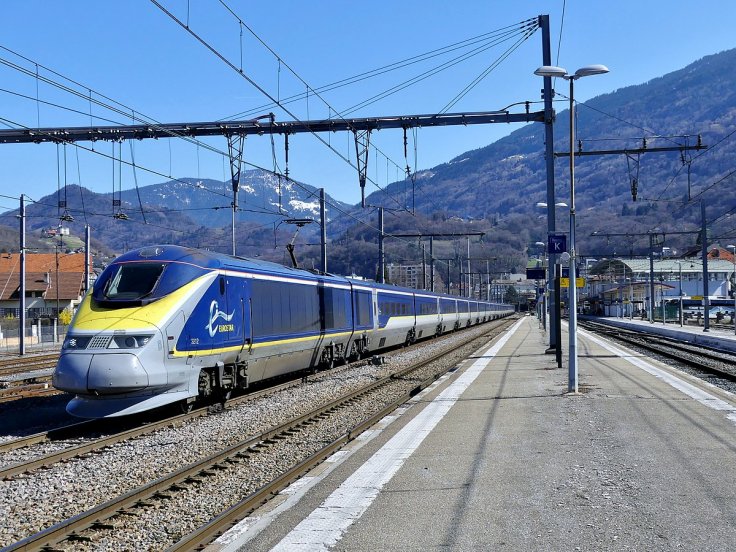On the last train to Europe, before Britain left the EU on Friday evening, passengers leaving London expressed sorrow, optimism and anger, reflecting the emotions of a nation conflicted ahead its great leap into the unknown.
Martin Kavanagh, a security consultant, crammed his tall frame into a window seat and contemplated Britain's uncertain journey ahead after ending 47 years of European Union membership.
"It is just the saddest day, ever," he said, heading for Paris to watch England play France at rugby. "It sends a message to the rest of the world that we are turning inwards when we should be looking out."
Bayan Patel, a 27-year-old British dentist on the way to Paris for a short break with his Spanish fiancee, said Britain's distinctiveness should be celebrated and there is too much pessimism about Brexit.
"We can stand on our two feet," he said. "Leaving the EU might turn out to be a fantastic decision. Right now people are focusing too much on the negatives."

DESTINATION UNKNOWN
The last Eurostar before Britain's historic exit left London's St Pancras station at 8:10 GMT on Friday.
There were no extra checks at customs. A transition period preserves Britain's EU membership in all but name until 2021.
There were no protests, celebrations or tears on the journey. There was no official announcement over the intercom as the train went into the tunnel under the Channel.
Many passengers said this felt like just another train ride. But it was not.
The Britain the train left behind will undergo the most significant change to its place in the world in its recent history.
The EU it arrived in faces a huge challenge to its project of forging unity after World War Two now that it has lost such a rich, powerful member state.
"No one wins from this, we will all be worse off," said Alan Ron, a 35-year-old French citizen who works in London and was returning home to visit friends and family.
GRAND AMBITIONS
The idea of a tunnel between Britain and France has been around for centuries. In 1802, a French engineer envisaged a tunnel with horse-drawn carriages, illuminated by oil lamps and ventilated by chimneys poking above the surface of the Channel.
But Victorian-era British Prime Minister John Palmerston dismissed the idea because "it would shorten a distance we already find too short".
It took a further 192 years after the first detailed plans were submitted to complete the job.
Now the future of the Eurostar is uncertain. The service was seen as a symbol of a Europe without borders, but it has failed to meet expectations – especially in terms of passenger numbers.
The ease of travel the train has depended on - with quick immigration checks for British and EU passport holders - seems certain to change.
The British and French government have warned that if the EU fails to agree an amicable trade deal then the Eurostar may be brought to a standstill.
French passenger Jean-Marc Charles, a 47-year-old IT manager, struck a note of optimism, saying he hoped Britain might rejoin the EU before too long.
"This could be just a short goodbye," he said "We hope that you will be back with us soon."









